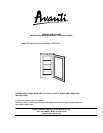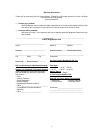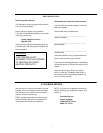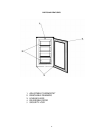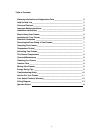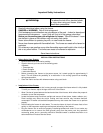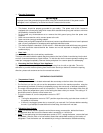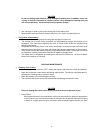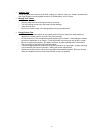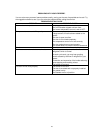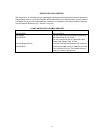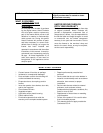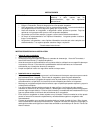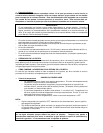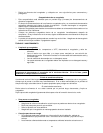
8
CAUTION
Do not use boiling water because it may damage the plastic parts. In addition, never use
a sharp or metallic instrument to remove frost as it may damage the cooling coils and
will void the warranty. We recommend using a plastic scraper.
? Use a sponge or towel to pick up the melting ice off the freezer floor.
? Remove the frozen food from the freezer and place it in a cooler to protect the food.
? The Freezer Compartment
? This compartment is designed for the long term storage of frozen food.
? The storage life of frozen foods varies and the recommended storage time should not be
exceeded. The instructions regarding the care of frozen foods should be followed when
defrosting the freezer.
? Pre-packed commercially frozen food should be stored in accordance with the frozen foods
manufacturer’s instructions for a three star frozen food storage compartment or home freezer.
? Place frozen food into the freezer as quickly as possible after purchase. If there are instructions
on the packet, carefully follow these instructions regarding storage times.
? The freezer door is susceptible to breaking due to excessive ice build up. Be sure to defrost
when the ice reaches ¼ inch thick.
CARE AND MAINTENANCE
? Cleaning Your Freezer
? Turn the temperature control to "OFF", unplug the freezer, and remove the food, and baskets.
? Wash the inside with a warm water and baking soda solution. The solution should be about 2
tablespoons of baking soda to a quart of water.
? Wash the baskets with a mild detergent solution.
? The outside of the freezer should be cleaned with mild detergent and warm water.
CAUTION
Failure to unplug the freezer could result in electrical shock or personal injury.
? Power Failure
Most power failures are corrected within a few hours and should not affect the temperature
of your freezer if you minimize the number of times the door is opened. If the power is going
to be off for a longer period of time, you need to take the proper steps to protect your food.



